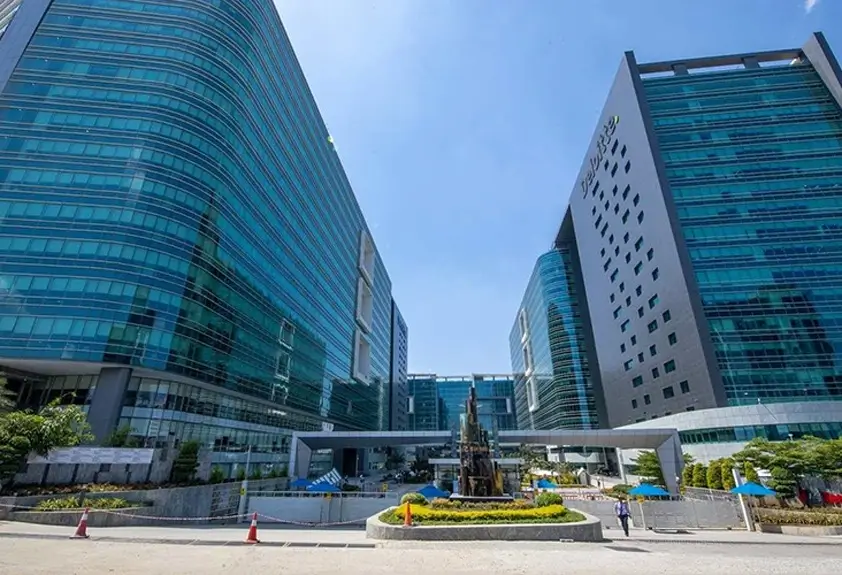IT Hubs and Urban Development
Read latest blogs and articles from Housystan

The Information mentioned here was last updated on:
29/1/2026IT Hubs and Urban Development: Transforming Cities Worldwide
Introduction
In recent years, the rise of information technology (IT) hubs has significantly impacted urban development across the globe. These centers of innovation are transforming cities, stimulating economic growth, and reshaping communities. This blog post explores how IT hubs contribute to urban development, the challenges they face, and their potential to shape the future of cities. By the end of our exploration, you'll have a comprehensive understanding of how technology and urban life intertwine.
- Verified Tenants/Buyers
- Unlimited Property Listing
- Zero subscription/charges fee
The Rise of IT Hubs
IT hubs, also known as tech ecosystems, are regions or cities that have become focal points of technology innovation and activity. The rise of these hubs can be attributed to several factors, including the growth of the tech industry, the availability of talent, and supportive governmental policies. Cities like Silicon Valley in the United States, Bengaluru in India, and Shenzhen in China are prime examples of vibrant IT hubs.
Key Characteristics of IT Hubs
Certain features make a city an ideal IT hub. These include:
- Abundance of Talent: Access to skilled professionals is crucial. Many IT hubs are close to prestigious universities that produce a steady pipeline of tech-savvy graduates.
- Fostering Innovation: A culture of innovation, supported by venture capital and angel investors, enables startups to thrive.
- Infrastructure: Robust digital and physical infrastructure, such as high-speed internet and efficient public transportation, are vital.
- Policy Environment: Governments often incentivize tech industries with tax benefits, subsidies, and relaxed regulatory frameworks.
Impacts on Urban Development
Economic Growth and Job Creation
The establishment of IT hubs leads to significant economic growth. Cities with strong tech sectors attract global companies, leading to job creation across various fields such as software development, data analysis, and cybersecurity. Beyond direct employment, tech hubs stimulate the local economy, benefiting service sectors like hospitality, retail, and transportation.
Urbanization and Infrastructure Development
The influx of tech workers into cities necessitates urbanization and infrastructure development. Housing demands increase, prompting real estate growth. There's also a need for improved transportation networks, healthcare facilities, and educational institutions. In many cases, IT hubs encourage the development of sustainable and smart city initiatives, incorporating technology to enhance urban living.
Cultural and Social Transformation
Culturally, IT hubs often bring diversity to cities. As people from different backgrounds move to tech centers, cities become melting pots of ideas and cultures. This diversity fosters creativity and innovation. Socially, these hubs can lead to gentrification, where rising property prices make it difficult for long-term residents to afford living in newly developed neighborhoods.
Challenges Faced by IT Hubs
Rising Living Costs
One of the most significant challenges is the rise in cost of living. As more people flock to tech centers, real estate prices and rental rates can skyrocket. This often leads to increased socioeconomic disparity within the city.
Infrastructure Strain
Rapid population growth can stress existing infrastructure. Public transport, roads, and utilities may become overwhelmed, leading to increased congestion and pollution. Cities must continuously invest in upgrading and expanding infrastructure to keep pace with growth.
Talent Shortages
While IT hubs attract talent, the rapid expansion of the tech industry can lead to shortages of skilled workers. This gap is particularly evident in specialized fields such as artificial intelligence and cybersecurity. Such shortages can hinder the growth of technology companies.
Examples of Successful IT Hubs
Silicon Valley, USA
Silicon Valley remains the quintessential IT hub. Home to tech giants like Apple, Google, and Facebook, the region is renowned for its innovation-driven economy. It offers a unique ecosystem of startups, venture capitalists, and tech enthusiasts.
Bengaluru, India
Bengaluru, known as the "Silicon Valley of India," has emerged as a global IT center. The city hosts numerous multinational companies and startup incubators, driven by a large pool of engineering talent and supportive government policies.
Shenzhen, China
Shenzhen, once a small fishing village, has transformed into a tech powerhouse. It is the manufacturing hub for major tech companies and is at the forefront of advancements in hardware technology.
Future Prospects for IT Hubs
Smart Cities and Sustainability
The future of IT hubs lies in the development of smart cities that leverage technology to create sustainable urban environments. Through the integration of AI, IoT (Internet of Things), and digital infrastructure, cities can improve efficiency and reduce resource consumption.
Remote Work and Decentralization
The COVID-19 pandemic accelerated the trend towards remote work, challenging the traditional structure of IT hubs. This shift could lead to the decentralization of tech ecosystems, allowing smaller cities to participate in the global tech economy. It also emphasizes the need for reliable digital infrastructure nationwide.
Cybersecurity Concerns
As IT hubs grow, so do cybersecurity concerns. Protecting data and ensuring privacy will be crucial in maintaining trust in digital innovations. Cities will need to invest in robust security measures to guard against cyber threats.
Education and Skill Development
The future of IT hubs will also depend on continuous education and skill development. As technology evolves, so must the workforce. Cities that prioritize education and training will remain competitive in the ever-changing tech landscape.
Conclusion
The emergence of IT hubs is undeniably reshaping urban development around the world. These centers of technology are catalysts for economic growth, infrastructure improvement, and cultural diversity. However, they also present challenges that must be addressed to foster sustainable development. By understanding the dynamics of IT hubs, policymakers, businesses, and communities can harness their potential to create vibrant, equitable, and forward-thinking urban environments.